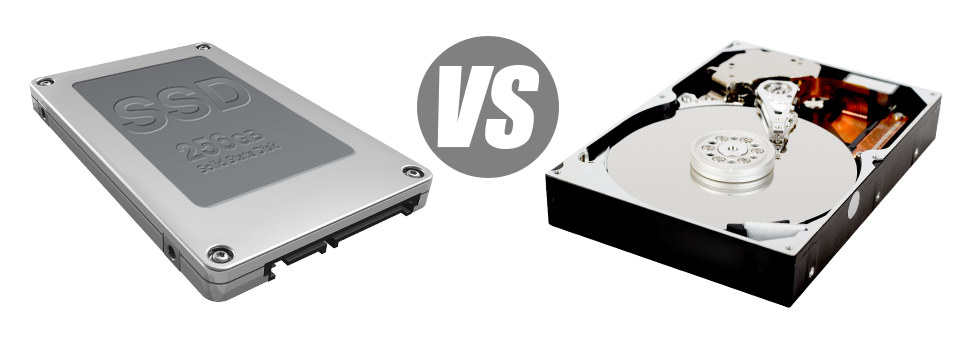Presently, all new laptops or computers include SSD drives instead of HDD drives. You’ll notice superlatives about them all over the specialized press – that they are quicker and perform better and they are the future of home pc and laptop manufacturing.
However, how do SSDs fare in the hosting environment? Could they be efficient enough to replace the established HDDs? At Blexio Hosting, we’ll make it easier to better understand the differences between an SSD as well as an HDD and choose which one most accurately fits you needs.
1. Access Time
With the introduction of SSD drives, file accessibility rates are now over the top. Thanks to the new electronic interfaces found in SSD drives, the average data access time has been reduced to a record low of 0.1millisecond.
HDD drives even now work with the exact same general data access technique which was actually created in the 1950s. Despite the fact that it was vastly upgraded ever since, it’s slower as compared to what SSDs are providing. HDD drives’ data file access speed ranges somewhere between 5 and 8 milliseconds.
2. Random I/O Performance
On account of the exact same revolutionary method which allows for quicker access times, it is possible to appreciate much better I/O effectiveness with SSD drives. They’re able to complete double the functions throughout a given time compared with an HDD drive.
An SSD can manage a minimum of 6000 IO’s per second.
Throughout the exact same trials, the HDD drives demonstrated that they are considerably slower, with simply 400 IO operations managed per second. Even though this feels like a significant number, for those who have a hectic server that serves numerous famous websites, a sluggish disk drive can lead to slow–loading web sites.
3. Reliability
The lack of moving elements and rotating disks in SSD drives, and also the recent developments in electronic interface technology have generated a considerably safer file storage device, having a typical failing rate of 0.5%.
As we already have mentioned, HDD drives rely upon rotating hard disks. And anything that works by using numerous moving parts for prolonged time frames is more likely to failure.
HDD drives’ common rate of failure varies somewhere between 2% and 5%.
4. Energy Conservation
SSD drives are considerably smaller compared to HDD drives as well as they do not have virtually any moving parts whatsoever. It means that they don’t produce as much heat and need significantly less electricity to function and fewer energy for cooling down purposes.
SSDs use up between 2 and 5 watts.
As soon as they were built, HDDs have been quite energy–hungry products. And when you have a hosting server with many HDD drives, it will increase the month–to–month power bill.
On average, HDDs use up between 6 and 15 watts.
5. CPU Power
The speedier the data accessibility speed is, the swifter the data demands will be processed. Consequently the CPU will not have to save assets waiting for the SSD to answer back.
The regular I/O wait for SSD drives is only 1%.
By using an HDD, you need to devote time anticipating the outcomes of your file ask. It means that the CPU will stay idle for further time, waiting around for the HDD to respond.
The standard I/O delay for HDD drives is about 7%.
6.Input/Output Request Times
The bulk of Blexio Hosting’s brand new servers now use simply SSD drives. All of our tests have revealed that utilizing an SSD, the normal service time for any I/O request although running a backup stays below 20 ms.
In comparison to SSD drives, HDDs offer significantly slower service times for input/output queries. During a web server backup, the regular service time for an I/O request ranges between 400 and 500 ms.
7. Backup Rates
Yet another real–life development is the speed at which the back–up is developed. With SSDs, a hosting server data backup now requires under 6 hours by making use of Blexio Hosting’s server–enhanced software solutions.
We implemented HDDs mainly for lots of years and we have decent understanding of how an HDD works. Generating a backup for a hosting server equipped with HDD drives can take about 20 to 24 hours.
To be able to at once improve the overall overall performance of your websites and not have to change any code, an SSD–powered website hosting service is really a very good option. Check our cloud hosting service packages and also the Linux VPS servers – our services feature really fast SSD drives and are available at inexpensive price points.
Hepsia
- Live Demo
Service guarantees
- Each one of our Virtual Private Servers is installed for you totally free. 99.9% network uptime. Full root/administrator access to the server.
Compare our prices
- Review the allocations and capabilities offered by our Virtual Private Servers. You can begin with a cheaper VPS Web Hosting configuration and upgrade with a click as your demands grow.
- Compare our hosting plans
Contact Us
- It is easy to make contact with us 24x7 by email or by utilizing our ultra–fast ticketing system. Blexio Hosting provides a 1–hour reply–back time frame guarantee.















